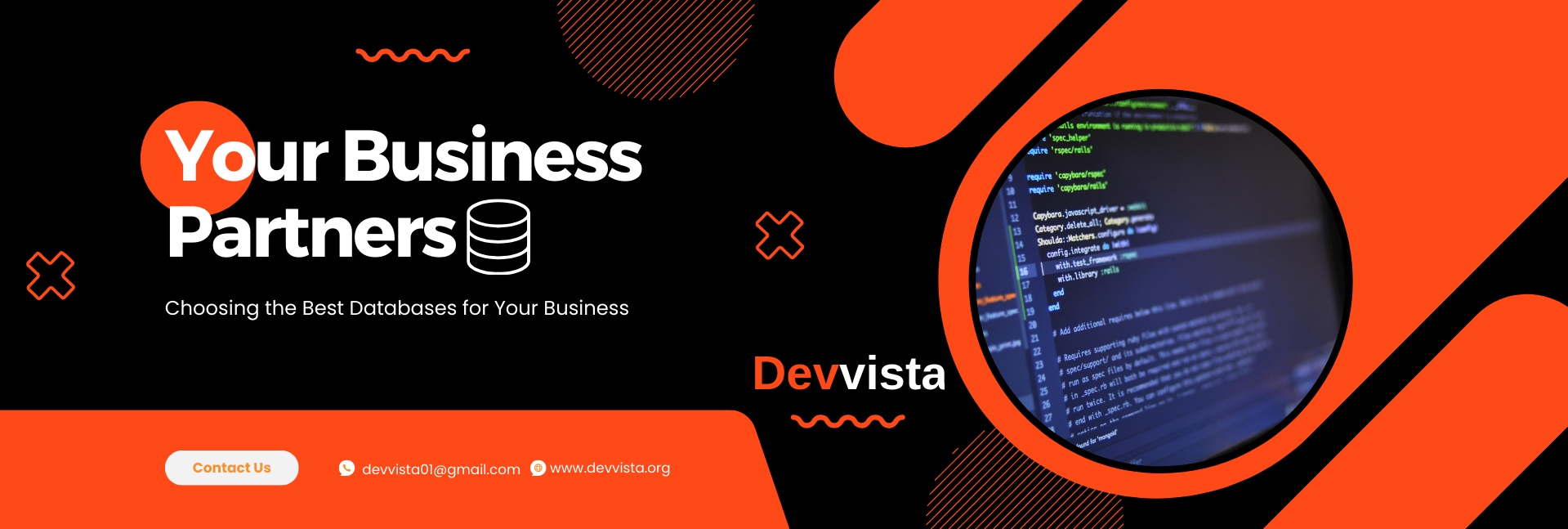
Choosing the Best Databases for Your Business
In today’s fast-paced world, data drives business decisions, powers digital platforms, and shapes customer experiences. At the core of this data revolution are databases—the systems that store, manage, and retrieve the information businesses rely on. But with so many options available, how do you determine which are the best databases for your needs? At Devvista, we’re passionate about helping businesses harness the power of data. From identifying the best databases for your goals to optimizing them for performance, we’re here to support you every step of the way. In this guide, we’ll explore what makes a database the best, the types of databases to consider, and how Devvista can help you build a robust and scalable data infrastructure.
What Defines the Best Databases?
The best databases aren’t one-size-fits-all. They’re the ones that align perfectly with your business needs, offering the right balance of performance, security, scalability, and ease of use. Whether you’re a small business managing customer records or a large enterprise analyzing massive datasets, the best databases will adapt to your unique requirements.
Key Features of the Best Databases:
Performance: Fast data retrieval and processing ensure smooth operations. Scalability: The database should grow with your business, handling more users and data effortlessly. Security: Robust encryption, role-based access, and frequent backups protect sensitive information. Flexibility: Support for both structured and unstructured data allows for diverse use cases. Ease of Use: Intuitive tools and clear documentation make management straightforward. At Devvista, we help businesses identify and implement the best databases, ensuring they meet both current and future needs.
Types of Best Databases
There are several types of databases, each optimized for specific use cases. Understanding these types can help you choose the best databases for your business:
1. Relational Databases
Relational databases store data in structured tables and use SQL (Structured Query Language) for management. They’re some of the most widely used databases today. Examples: MySQL, Microsoft SQL Server, PostgreSQL, Oracle Database. Best For: Financial systems, customer relationship management (CRM), inventory tracking, and structured data.
2. NoSQL Databases
NoSQL databases are designed for unstructured or semi-structured data, offering high scalability and flexibility. Examples: MongoDB, Cassandra, DynamoDB, Couchbase. Best For: Real-time analytics, big data applications, IoT (Internet of Things), and content management systems.
3. Cloud-Based Databases
Cloud databases eliminate the need for physical servers, offering cost efficiency, global accessibility, and easy scalability. Examples: Amazon RDS, Azure SQL Database, Google Cloud SQL. Best For: Startups, SaaS applications, and businesses seeking cost-effective, flexible solutions.
4. Distributed Databases
Distributed databases store data across multiple servers, ensuring high availability and fault tolerance. Examples: Apache Cassandra, Google Spanner. Best For: Large-scale, global applications requiring low latency and redundancy.
5. Graph Databases
Graph databases focus on relationships between data points, making them ideal for understanding connections and networks. Examples: Neo4j, Amazon Neptune. Best For: Fraud detection, recommendation systems, and social networks. At Devvista, we work with businesses to evaluate these options and choose the best databases that align with their unique requirements.
Why Choose Devvista for Your Database Needs?
Selecting the best databases is only the first step. Maintaining, optimizing, and scaling them requires expertise. That’s where Devvista comes in. Our comprehensive database services ensure your systems are always performing at their best.
How Devvista Supports Your Database Journey:
Customized Solutions: We tailor database recommendations and configurations to fit your business goals. Seamless Integration: Our team ensures your databases integrate smoothly with existing systems. Performance Optimization: We fine-tune your databases to handle high traffic and complex queries. Security Enhancements: With advanced security protocols, we protect your data from threats. Scalability Planning: Our solutions prepare your databases to grow alongside your business. At Devvista, we don’t just provide databases—we deliver peace of mind.
Benefits of Using the Best Databases
Investing in the best databases has far-reaching benefits for your business. Here’s how they can help:
1. Enhanced Performance
Fast query responses improve user experiences and keep applications running smoothly.
2. Scalability
The best databases adapt to your growing data needs without compromising speed or reliability.
3. Robust Security
Modern databases come with advanced security features, such as encryption, multi-factor authentication, and access controls.
4. Cost Savings
Cloud-based databases reduce infrastructure and maintenance costs, offering pay-as-you-go pricing models.
5. Actionable Insights
With built-in analytics tools, the best databases help you uncover trends and make data-driven decisions. At Devvista, we ensure you maximize these benefits by optimizing your database systems for peak performance.
How to Choose the Best Databases
Choosing the best databases requires a clear understanding of your business needs. Here’s a step-by-step guide:
1. Analyze Your Data
Structured data? Relational databases are a great choice. Unstructured or semi-structured data? NoSQL or graph databases might be the solution.
2. Evaluate Scalability
If you expect rapid growth, opt for cloud-based or distributed databases that can scale seamlessly.
3. Prioritize Security
Choose databases with robust security measures like encryption, access controls, and automated backups.
4. Consider Your Budget
Cloud databases are cost-effective for startups, while on-premises solutions may suit larger enterprises with specific requirements.
5. Consult Experts
Working with database professionals like Devvista ensures you select the right system and set it up for success.
Future Trends in Best Databases
The database landscape is constantly evolving. Staying ahead of trends ensures you’re always using the best databases for your business. Here are some emerging trends:
1. AI-Powered Databases
Artificial intelligence automates database management tasks, improving efficiency and accuracy.
2. Serverless Databases
These eliminate the need for server management, allowing businesses to focus on applications and data.
3. Hybrid Systems
Combining relational and NoSQL technologies for greater flexibility and functionality.
4. Edge Databases
Processing data closer to users reduces latency and improves application performance. At Devvista, we stay ahead of these trends, offering innovative solutions that keep your business competitive.
Frequently Asked Questions
1. What are the best databases for small businesses?
Relational databases like MySQL or cloud solutions like Amazon RDS are ideal for small businesses due to their affordability and ease of use.
2. Which databases are best for big data?
NoSQL databases like MongoDB and Cassandra excel at handling large volumes of unstructured data.
3. How do I choose the best database for my business?
Consider factors like data type, scalability needs, security requirements, and budget. Consulting with Devvista ensures a tailored solution.
4. Can Devvista help with database migration?
Yes! At Devvista, we offer seamless and secure database migration services to minimize downtime and maintain data integrity.
5. Are cloud databases the best option for startups?
Yes, cloud databases like Google Cloud SQL or Azure SQL Database provide flexibility, scalability, and cost savings, making them perfect for startups.
Leave A Reply
Your email address will not be published. Required fields are marked *


Comments
No comments yet. Be the first to comment!